- Home
- Patrick Robinson
H.M.S. Unseen Page 27
H.M.S. Unseen Read online
Page 27
Commander Adnam thus headed quietly into the western edge of the bay, where the chart told him he could land and secure his boat behind a rocky outcrop and out of sight of the north shore. He would then proceed on foot to the military base, which he hoped would be deserted, with a store full of gasoline. If there were soldiers in residence, he proposed to move into one of the original old islanders’ cottages, which were currently being restored by the Scottish National Trust and the Scottish National Heritage in the summer months, and wait out the soldiers’ forty-eight-hour tour of duty. He had sufficient food and mineral water to last him at least that long.
He ran without incident onto the dark shore of Village Bay. Given the calmness of the sea, he was surprised at the rough water breaking onto the shore. He steered the Zodiac right in, but heaved the engine up as the bow hit the shingle. As it clicked into its secure position, he darted forward with the painter in his right hand and jumped off the bow into a few inches of water.
He waited for the next wave to come in and lift the much heavier stern, moved left, and heaved the stern right around, with the raised rubber bow now headed to sea. He knew from long experience that even the smallest waves can wash right over the stern of a Zodiac, and quickly fill it with seawater and weed. The problem was, that the stern, with the suspended engine, was very heavy, and that was the part he had to pull. So he attached the anchor line to the wooden transom, and every time the sea lifted the boat, Ben pulled on that line, until the Zodiac was on relatively dry shingle. Then he wrenched it around and dragged it farther up the beach into the shadow of the rocks, where it would not be seen unless someone fell over it. It remains a sailor’s mystery why it is so difficult to haul a 15-foot rubber hull backward, but hardly any trouble to pull it forward.
He leaned on the rocks and opened one of his bags, devoured a cheese sandwich and swigged greedily at a bottle of water. He was in the lee of the wind, but it was still cold, and he pulled on his hood again as he set off toward the military camp. Ben moved quickly over the beach toward the old church and manse, where St. Kildans had often spent nine hours a day on Sundays, before they finally evacuated the place in 1930 after a thousand years.
The old white-painted church actually stood just beyond the camp, but it provided excellent cover from which to observe the military buildings. And the submariner stayed low, finally coming off the beach some 40 yards beyond the Army huts on the north shore. He reached the moonlit shadows of the church and edged around them until finally he faced the camp.
There, to his irritation, he saw lights in two rooms, and as he drew nearer he could hear the unmistakable hum of a generator. As if to confirm his worst fears, there was an Army Land Rover parked right outside the door. No doubt. There were two soldiers, at least, in that building.
Ben swiftly reassessed his options.
A) He could check out the building, break in and kill both men immediately, drive his boat over, fill it with gas, and leave. But that would be messy, and the murder of two British soldiers would quickly cause an uproar he did not need, as soon as the landing craft returned, probably the next day.
B) He could hide his boat, and himself, until they all went away in a couple of days. Then he could break into the store and steal the gasoline. But that ran the small risk that the Army landing craft, which would probably come in during daylight, might somehow see the Zodiac as it crossed the bay. Or, the soldiers in residence might find his boat. That option was no good either. Too slow. Too many risks.
He looked again at his watch. It was 0200. He moved back into the shadows, checked his chart, and went to Plan C. He would make his way back to the boat, deflate the inflatable sides, and pile shingle over and around it to disguise it from anyone approaching by water. Then he would find the main street, to the north of the camp, and get into one of the houses for better shelter overnight. The next day he would get around to his boat before it grew light at around 0900, and wait out the short daylight time until around 1500. Then he would go to work.
By 0300 the boat was impossible to identify, and, carrying his two bags, Ben Adnam found his way to the line of village houses shown clearly on the map and shoved open the door to the one with the freshest paint. Inside it was cold, but out of the wind, and there was a sofa set in front of a fireplace. Ben decided not to risk a fire, but he spread out luxuriously upon the sofa and fell asleep. He clutched his big desert knife in his right hand, which rested on the floor.
He awakened at 0800, ate a sandwich, drank more mineral water, and slipped out of the house into the chill of a March morning in the outer Hebrides. He pulled up his balaclava and left the road, moving cross-country back to the boat, staying out of sight and range of the Army buildings. Nothing stirred, save a gaggle of puffins on the beach and a passing gannet that had been fishing in the shallows.
At 1100 he heard the Army Land Rover rev up and drive away. He could see two soldiers occupying both front seats. As they left, driving to the west, Ben carefully headed for the camp, and there, beyond the church, was the building where the lights had been on. There was nothing. Just silence. No sign of life.
“Just the two of them,” said Ben to himself. “Excellent.” And he made his way back to the boat, where he waited out the daylight hours, watching the jeep return at around 1400.
At 1700, Lieutenant Chris Larkman and burly Corporal Tommy Lawson, both of the Royal Army Service Corps, were playing cards in front of the electric fire that warmed their spartan room, when the young officer put down his losing hand and walked slowly over the to north window.
“Anything the matter, sir?”
“No. Nothing. I just thought I saw a light, way up there on the headland, the Oiseval side.”
“Well, sir, unless it was a plane crash, I’d judge that as totally unlikely.” The accent was flat, East London, in contrast to the harder public-school tones of the commissioned man.
“Very unlikely, Corporal Lawson. It must have been a reflection through the window.”
“Yessir. As a matter of fact I’m very pleased it was nothing because I’m about to take command of this game.”
“I wouldn’t doubt it, Corporal. Nor would you if you could see the load of rubbish I’m playing with.”
“Right, sir. ’Ow about that,” he replied, laying down the ace, king, queen, and jack of spades, plus the other three kings.
“Christ, Corporal. That’s a lot too good for me…hey…wait a minute. I could have sworn I just saw that light again.”
“Where, sir? Let me ’ave a look.”
The thirty-two-year-old Lawson joined the twenty-five-year-old officer at the window. In the way of the British Army, it was the young elite assisted by the old stager, a combination upon which the British Army was built. Chris Larkman, whose grades at Bryanston had not been good enough to put him through a top university, had struck up a lasting friendship in the Army with the former failed bricklayer who now shared this remote island with him. And they would represent a formidable fighting unit, Larkman and Lawson, should push come to shove. The slim athletic, former Hampshire County rugby fullback, and the rough East Ender with iron in both fists.
Lieutenant Larkman’s wealthy parents were bitterly disappointed that their son should have ended up in the RASC—“So much nicer in a good Guards regiment”—but Chris was happy, and he was considered by his superiors as a man destined for higher rank. Lawson was going nowhere, but he was fine where he was, a natural-born corporal, tough, bossy, sharp, irreverent, and a bugger when riled.
He stood by the window with his superior, peering into the black night, up at the great escarpment of Oiseval, which rose fairly smoothly on the landward side, then ended with terrifying suddenness to seaward, like a giant apple sliced in half. The black cliff plunging down five hundred feet, almost sheer to the jutting deepwater rocks below. It was only half as high as some of the other cliffs on St. Kilda, but it was a hell of a sight from both top and bottom.
“There it is, Corporal…look…up
there…to the right…three flashes.”
“Where, sir…You mean ’igh up?”
“Right. Keep looking. Pretend you are staring up at the very top of the headland. Keep staring.”
Three minutes went by, and then Lieutenant Larkman saw it again. “Did you see it, Corporal? Three flashes.”
Tommy Lawson was silent, which was unusual and brief. But when he answered he was deadly serious. “Yessir. Yes I did. That was not some fluke of nature. Someone’s up there, sir. And if he ’asn’t landed in a bloody parachute, quite frankly I don’t know how the fucking ’ell ’e got up there, do I?”
“Do you think it is definitely a person? Not some meteorite or something.”
“That, sir, is a bloke. A bloke wiv a fuckin’ light, right? Otherwise, he wouldn’t be shinin’ it, would ’e?”
“No, I suppose he wouldn’t.”
“Well, what’s ’e fucking doing up there then? That’s what I wanna know, don’t I?”
“Yes, that’s rather what I want to know, too. We, Corporal, had better find out.”
“Well, sir. We’ve really got two choices. We can either take the jeep and get up there, wiv lights, and flush ’im out, or rescue ’im, as the case may be. Or, we leave ’im up there all night to freeze ’is bollocks off.”
“I don’t think we really ought to do the latter. We are in charge of the place. There is quite a lot of sensitive equipment here, and I am inclined to think we should just go and sort it out?”
“I think that is the correct military assessment for an officer of your class, sir. And I’m ’ere to do as you tell me. ’Owever, I must say, meself, I’d probably take the bollock-freezing option, wouldn’t I?”
“Okay, Corporal. Coats on. We don’t need weapons. Bring two flashlights, and let’s get out there. Warm the engine over, will you? I’ll shove a petrol can in the back…You know the gauge has never worked on this bloody thing.”
“Right, sir.” Corporal Lawson headed for the door, jangling the keys to the jeep. He opened it and kicked over the engine, which started with a roar. The lieutenant was right behind him, with a gas can from the store.
The breath of both men was white on the freezing night air, and as the corporal walked, he glanced again up to the highest escarpment of Oiseval. And there it was again. Three short flashes. But this time it was followed by three longer ones, and then, immediately, by three more short ones. “Sir, I think we’re seeing an SOS up there,” said Tommy Lawson. “Which means it’s got to be an aircraft of some kind. There’s no other way anyone could be up there…Might be a Navy chopper or something. But we didn’t hear nothing, did we?”
“No, we didn’t,” replied the lieutenant. “Nothing at all.” And there was a worried frown on his face as Corporal Lawson drove the jeep over the rough terrain beyond the camp, heading northeast across the rising ground, up toward the light.
The total distance up to the summit of Oiseval was less than half a mile, but it was rock-strewn, and Lawson had to pick his way through the boulders. They were making about 5 mph and the Land Rover lurched and roared its way up the steep hill to the top. Every few minutes they saw the flash of the light above, and as they drew closer they had to make a wide detour around a sheer rock face that even their vehicle could not handle.
Finally, they were within sight of the highest point and saw the flashlight again, dead straight ahead, to the east, on the brink of the cliff. There was no sign of wreckage, and the headlights of the Land Rover were beginning to shine out over the ocean far below.
“What I don’t want to do, is to drive this fucking thing over the edge, right sir?”
“Right, Corporal. Actually, I think we should stop here and wait for the light. Keep the engine running and the main beam up so that whoever it is can see us. He can’t be far away, but it’s so damned dark.”
“Yessir. And it’s a bloody long way down if anyone misjudges it.”
They waited for five minutes. And there was nothing. “Perhaps ’e’s fainted, sir…or died.”
Chris Larkman was about to agree, when the light flashed again, directly opposite the officer’s left shoulder. Not more than 30 yards away. There was no sound. Corporal Lawson heaved on the hand brake, took his flashlight, and opened the door. “ ’Old it, sir. I’ll come round.”
The corporal stood outside for a few moments, fastening his big winter jacket and pulling on his gloves. Then he slammed the door on the driver’s side and walked to the back of the Land Rover, and as he did so, Ben Adnam came out of the night like a demon and slammed the paperweight into the area behind Lawson’s right ear. The big East Ender crumpled to the ground, and Chris Larkman never heard a thing above the noise of the engine. And through the steamy Perspex of the rear window, he never saw the Iraqi commander drag the corporal’s body back around to the driver’s side.
Lieutenant Larkman waited. Then he called out, “Corporal Lawson? Everything okay?” But no reply came back, and Chris tightened his belt and pulled down his hat. Then he opened the door and stepped out onto the frozen peak of Oiseval, instinctively moving to the back of the jeep, in the direction he had seen the corporal walk.
Commander Adnam was waiting. The young lieutenant thought he saw a shadow and made to turn, but he was too late. The former master of HMS Unseen banged the paperweight hard into the area behind the officer’s right ear, and he, too, crumpled to the ground.
It took Ben Adnam a full ten minutes to haul both unconscious men back into the front seats of the Land Rover. But he managed in the end, let go the hand brake, slammed the driver’s door shut, and heaved against the open window.
The Land Rover began to roll forward, its headlights still on. It gathered speed slowly, and was traveling at only around 10 mph when it plunged over the precipice, its engine still running, all the way down, until it crashed into deep water 500 feet below. Ben heard it hit the ocean, and doubted whether anyone would ever find it. Finally alone on St. Kilda, he was extremely busy. He checked his watch. Lieutenant Larkman and Corporal Lawson had died at 1741. The commander turned back toward the military camp far below, and, snug in his cold-weather gear, using the big flashlight he had borrowed from Tommy Lawson, made his way down to the British Army’s fuel store.
It took him fifteen minutes, and he made a visit to the living quarters before he went to work. He noticed a label on a suitcase. “Lawson T. 23082826. Corporal. Royal Army Service Corps.”
Ben stood by the electric fire for a few minutes and decided to make himself a cup of tea in the small kitchen. He sat down in the one comfortable chair and sipped the hot, sweet brew, thinking about the journey he must now make—140 miles at 15 knots. Over nine hours running time if he made no mistakes. The sea remained calm enough. Perhaps the low front, which he had feared, had just drifted by on its way to Iceland and the North Cape. He’d need a lot of gasoline. But right now he had a lot of gasoline.
He returned to the kitchen and washed and dried his cup, carefully placing it back on the shelf where he had found it. There were two dirty cups in the sink, and the arch terrorist considered a third might be a clue to the forthcoming Army investigators. Also, he wanted no fingerprints left behind.
Leaving the lights and heater switched on, he went outside, still using Lawson’s flashlight to save his own. The fuel store was open and inside there was a 1,000-gallon tank of diesel on which the gauge showed half-full. This was not good news since it would not power his outboard. But he found a stack of four-anda-half-gallon gasoline cans in a lean-to shed at the back—the fuel for the Land Rover, stored in the fresh air, for safety.
Ben left immediately, heading along the shore toward his boat. Once there he cleared the stones away, reinflated the buoyancy bays, and hauled the boat the short distance to the water, where he manhandled it into the light surf breaking in from the Atlantic. He paddled out into deeper water and let the engine down. He primed it, using the rubber bulb on the fuel line, and hit the starter. Captain Gregor’s Zodiac fired the first time,
and Ben drove it easily across the bay to the flat landing place right below the church.
He raised the engine and beached the Zodiac. Then he jumped out and spun the boat around, bow to sea, with the stern and raised engine hard aground. He guessed the boat would float and drift on the incoming tide inside twenty minutes, so he had to move fast. He jogged back to the store, returning more slowly with two heavy fuel cans in under fifteen minutes. There was an extended tank under the seat of the Zodiac, and it took the whole nine gallons.
Two journeys later he had another three cans on board, giving him 13 gallons more, which would, he knew, be plenty to carry him over the water to the little Scottish fishing port of Mallaig. He still had six big sandwiches left and three bottles of water, but he had not taken extra food from the soldiers’ kitchen, great though the temptation had been. Commander Adnam regarded himself as a professional military man, not a sneak thief, and his principles did not permit him to take as much as a piece of cheese, unless it was essential to his survival. He was curiously obsessive about the whole concept of acting professionally. Indeed he had his own private definition. “Professionalism has nothing to do with money. It involves the total elimination of mistakes.”
And thus far, he considered he had made none. The Iranians plainly believed he was dead, an error of judgment that had also been made briefly by Iraq, and for much longer by Israel and the United States.
The Army landing craft would arrive the next morning at the earliest, and the officers would be faced with a complete mystery involving the disappearance of a lieutenant and a corporal, plus one Land Rover, green in color, property of the Royal Army Service Corps. Unless they were prepared to spend years combing every yard of the treacherous deep waters beneath St. Kilda’s cliffs, they would never know what had become of the missing men. Nor would they ever know that Commander Adnam had ever visited the island. There was, he knew, no trail. There had been no fighting, no gunshots, no blood, nothing broken. No one had seen him. At least no one who was still alive. And he was not injured. Better yet, he was mobile.

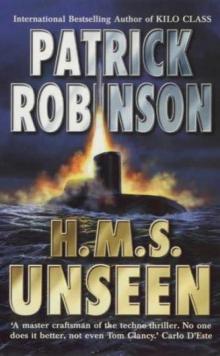 H.M.S. Unseen am-3
H.M.S. Unseen am-3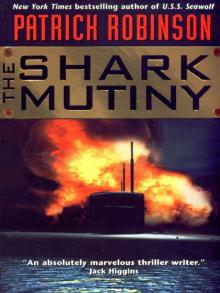 The Shark Mutiny (2001)
The Shark Mutiny (2001)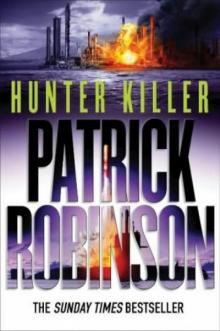 Hunter Killer am-8
Hunter Killer am-8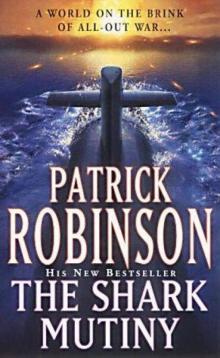 The Shark Mutiny am-5
The Shark Mutiny am-5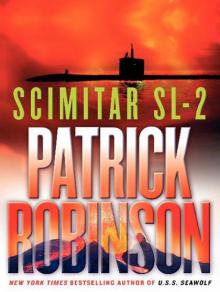 Scimitar SL-2
Scimitar SL-2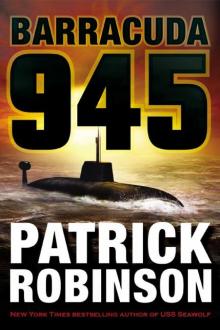 Barracuda 945 am-6
Barracuda 945 am-6 Hunter Killer
Hunter Killer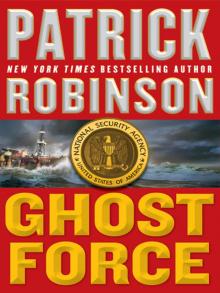 Ghost Force
Ghost Force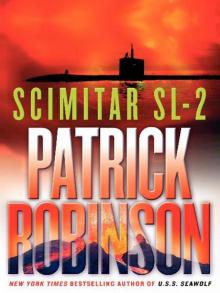 Scimitar SL-2 (2004)
Scimitar SL-2 (2004)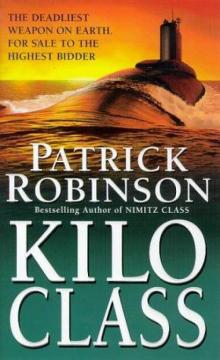 Kilo Class am-2
Kilo Class am-2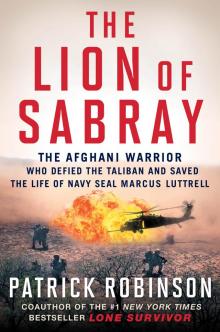 The Lion of Sabray
The Lion of Sabray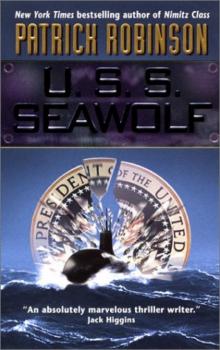 U.S.S. Seawolf am-4
U.S.S. Seawolf am-4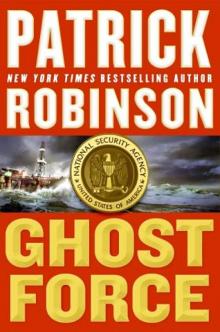 Ghost Force am-9
Ghost Force am-9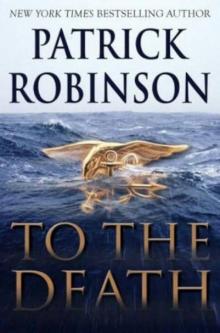 To the Death am-10
To the Death am-10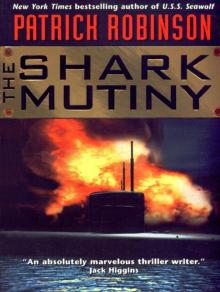 The Shark Mutiny
The Shark Mutiny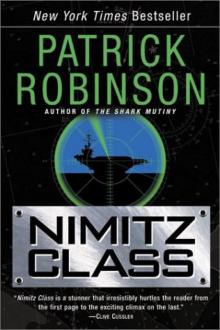 Nimitz Class am-1
Nimitz Class am-1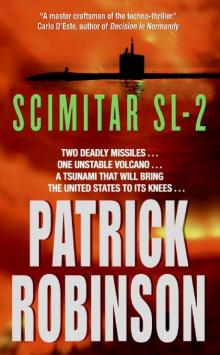 Scimitar SL-2 am-7
Scimitar SL-2 am-7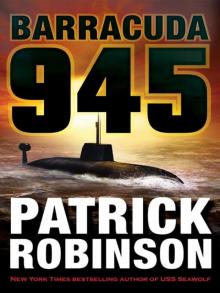 Barracuda 945
Barracuda 945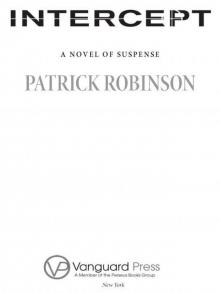 Intercept
Intercept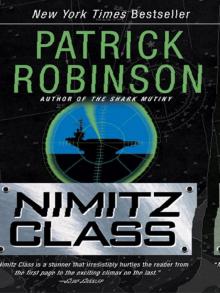 Nimitz Class (1997)
Nimitz Class (1997)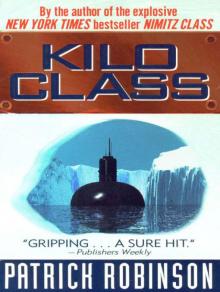 Kilo Class
Kilo Class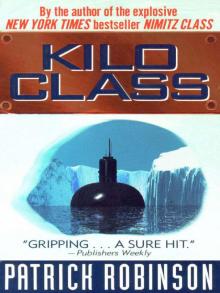 Kilo Class (1998)
Kilo Class (1998) Diamondhead
Diamondhead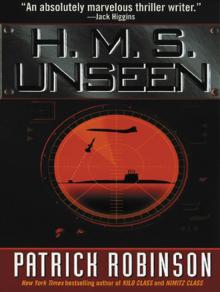 H.M.S. Unseen
H.M.S. Unseen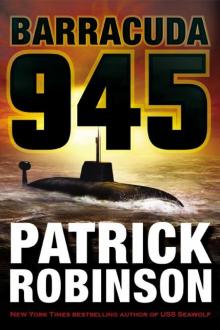 Barracuda 945 (2003)
Barracuda 945 (2003)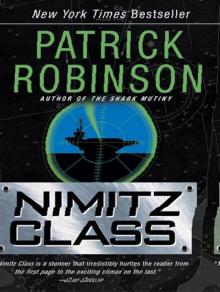 Nimitz Class
Nimitz Class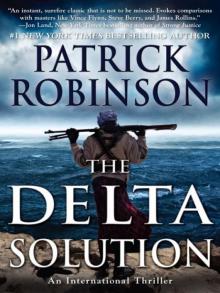 The Delta Solution
The Delta Solution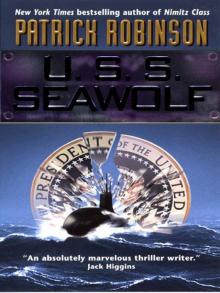 U.S.S. Seawolf
U.S.S. Seawolf